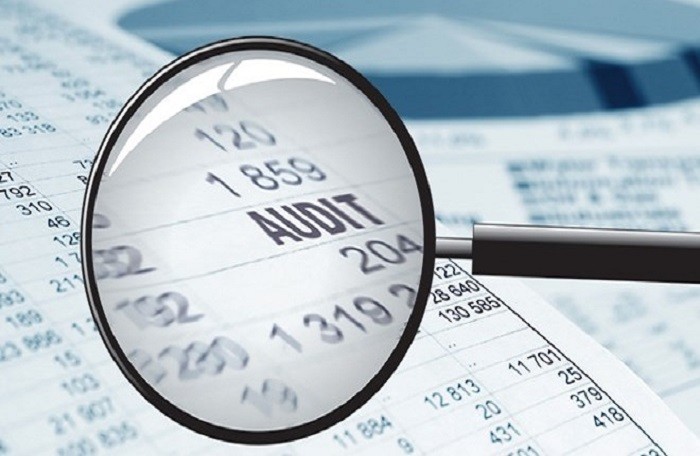Circular 66: Scope of internal audit for corporate use in Vietnam
This is a notable content of the Circular No. 66/2020/TT-BTC of the Ministry of Finance of Vietnam introducing sample Regulations on internal audits for corporate use, effective from September 01, 2020.

According to the sample Regulations issued together with Circular No. 66/2020/TT-BTC of the Ministry of Finance of Vietnam, scope of internal audit includes:
1. Providing assurance through the testing and evaluation of the adequacy and effectiveness of governance, risk management and internal controls to help (enterprise’s name) to achieve strategic, operational, compliance and financial objectives:
- Monitoring and evaluating governance processes.
- Monitoring and evaluating the effectiveness of the enterprise’s risk management processes.
- Assessing risks related to the attainment of the enterprise’s strategic objectives.
- Evaluating systems set up to ensure compliance with policies, plans, procedures, legislation, financial, accounting systems and regulations that may have significant effects on the enterprise.
- Testing and attesting the quality and reliability of economic and financial information of the financial statement and executive accounting reports before submission thereof for approval.
- Evaluating means of protection of assets and the existence of these assets where necessary.
- The report also includes significant risks and controls, risk of fraud, governance and other matters that are necessary or are requested by the Board of Directors and Governing Board/Board of Trustees/Company’s President (or the Audit Committee or a subordinate body/department (if any) authorized by the Governing Board/Board of Trustees/Company’s President).
2. Making in-depth analyses and recommendations based on data assessment and processes of the enterprise:
- Evaluating the reliability and integrity of the management information system and means by which such information is determined, measured, sorted and reported.
- Analyzing activities or programs to determine whether findings and results are consistent with established goals and objectives.
- Assessing whether activities or programs are performed according to the plan.
- Assessing the effectiveness and efficiency of resources used.
3. Providing consultations and recommendations independently and objectively: Performing consulting activities related to management, risk management and internal control processes appropriate to (enterprise’s name).
4. Conducting pre-engagement activities
- These activities are performed before the implementation of the audited department’s/unit's projects, activity plans or programs, serving the purpose of assessing the reliability of information, documents, the economy, feasibility and effectiveness of these projects, activity plans and programs;
- These activities may help management gain reliable information to make decisions.
5. Conducting simultaneously engaged audit activities
These activities are performed during the ongoing implementation of the audited department's/unit's activity plans and projects, aiming to evaluate the progress and quality of the activity performance process; detect and promptly recommend measures to correct deviations, shortcomings and weaknesses arising in the process of implementing projects, programs and work plans in order to ensure the best implementation of objectives of the project or plan of the audited department/unit.
6. Conducting post-engagement activities
These activities are performed after the implementation of the audited department/unit completes their project, program, and activity plan in order to carry out the contents and objectives of the financial statement, compliance and operational audit on operations of the audited department/unit.
7. Providing the enterprise with counseling for selection and control of independent audit services to ensure the economy and efficiency.
8. Periodically reporting on the purposes, authority, responsibility and performance of the internal audit department in relation to the department's plan.
9. Inspecting and evaluating specific activities as requested by the Board of Directors and the Governing Board/Board of Trustees/Company’s President (or the Audit Committee or a subordinate body/department (if any) authorized by the Governing Board/Board of Trustees/Company’s President).
10. Depending on the subject of the audit, when planning an internal audit, it is possible to combine pre-engagement, simultaneously engaged audit and post-engagement activities.
View more details at the Circular No. 66/2020/TT-BTC of the Ministry of Finance of Vietnam, effective from September 01, 2020.
Ty Na
- Key word:
- Circular No. 66/2020/TT-BTC
- Details of the traditional medicine healthcare service package provided by the commune health stations in Vietnam from December 19, 2024
- Details of the healthcare service package for persons with disabilities implemented by the commune health stations in Vietnam from December 19, 2024
- Guidelines for age-based classification of online video games in Vietnam from December 25, 2024
- Conditions for operation of public internet access locations in Vietnam from December 25, 2024
- Reorgnization of commune-level administrative units in Hung Yen from December 1, 2024
- Latest procedures for official recruitment examination in Vietnam
-

- Vietnam: 05 codes of ethics for internal audit ...
- 16:05, 01/08/2020
-

- Responsibilities and authority of internal audit ...
- 15:50, 01/08/2020
-

- Vietnam: Regulation on assurance and improvement ...
- 15:43, 01/08/2020
-

- Vietnam: Responsibilities of Director General ...
- 15:35, 01/08/2020
-

- 11 authority of internal audit departments applicable ...
- 15:25, 01/08/2020
-

- Procedures for conducting customs formalities ...
- 14:08, 12/11/2024
-

- What are addtional regulations on the detailed ...
- 14:02, 12/11/2024
-

- Duties and powers of the Office of the Delegation ...
- 11:30, 12/11/2024
-

- Regulations on the annulment of community covenants ...
- 11:07, 12/11/2024
-

- Details of the traditional medicine healthcare ...
- 10:00, 12/11/2024
 Article table of contents
Article table of contents
